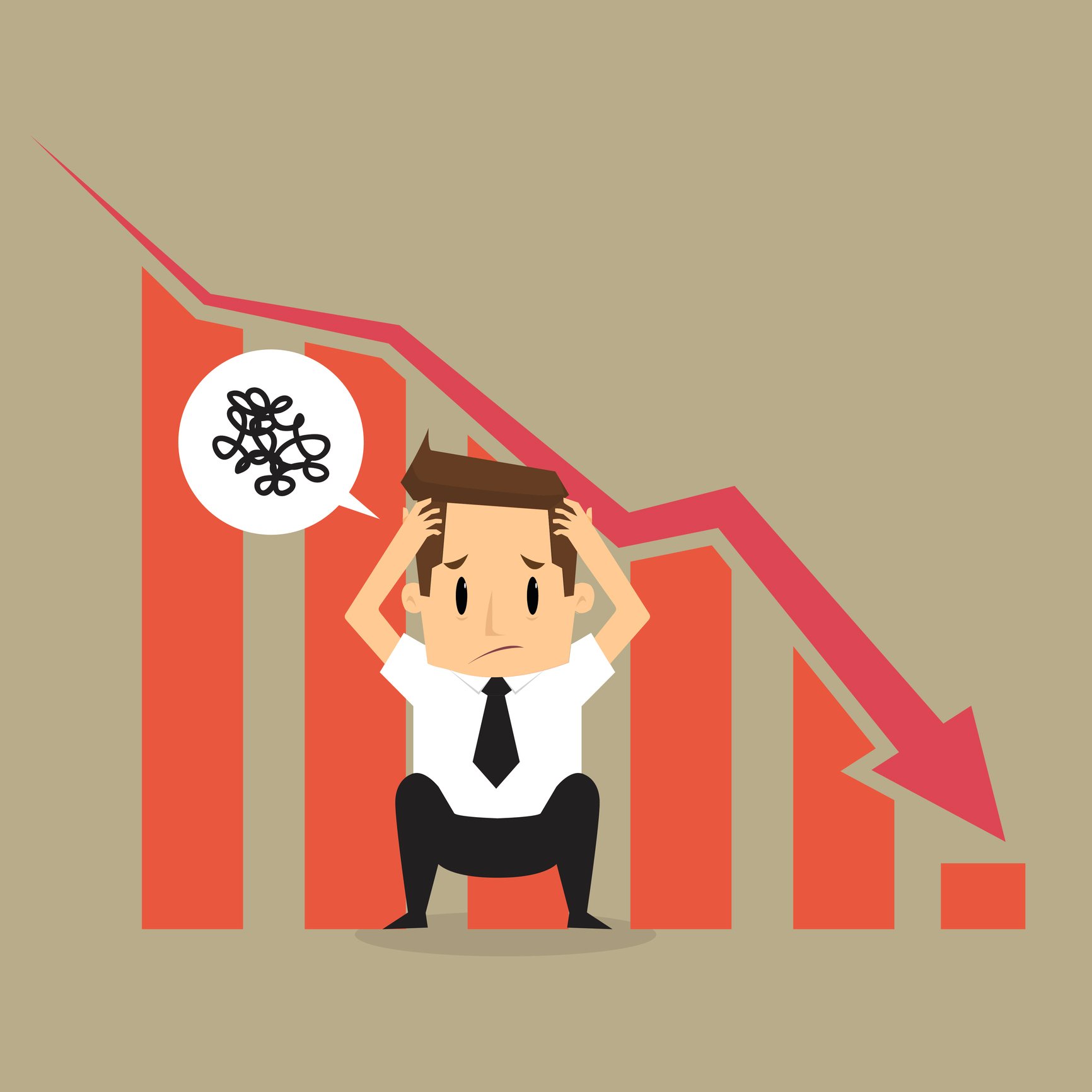In the span of a month, COVID-19 went from an existential health scare to having a very real and likely very deep effect on the global economy. It's in times like this that Warren Buffett's pithy saying comes true: "Only when the tide goes out do you discover who has been swimming naked." With the overall global economic tide that has been rising for more than a decade now in retreat, there are indeed many businesses that have been caught swimming naked -- with soaring debt, dwindling cash balances, and little growth during the good times to show for it.
However, in the market turmoil that has erupted, quality companies that have been exercising discipline and were all set to thrive beyond the coronavirus crisis are also getting bludgeoned. Buying shares of said companies now will sow the seeds for future returns. Three stocks that fit the bill are Facebook (FB 0.09%), NVIDIA (NVDA 0.29%), and Skechers (SKX +0.00%).

Image source: Getty Images.
Hated by some, used by the many, and here to stay
First up, there's the social media king that needs no introduction, and which owns fellow social media stars Instagram and WhatsApp, as well as virtual reality company Oculus. Together with Google parent Alphabet, Facebook corners a massive section of the digital advertising industry. In economic downturns, ad budgets often get slashed, so that doesn't bode well for Facebook, since nearly all of its revenue is derived from advertising.
However, in the case of Facebook, lower spending from advertisers is likely to be at least partially offset by higher monthly average users and higher user engagement. People are stuck at home, so all things digital are likely to get a bump, Facebook included. Though economic conditions are up in the air for now, management's previous call for at least 20% revenue growth in 2020 could still be in the cards.
Plus, in 2019, digital advertising grew to half of the nearly $600 billion industry. Ad spending overall has been quickly moving digital, but there's still plenty of ramp left for Facebook and other digital advertisers in the years ahead. Coronavirus plays into that transition.
And finally there's the matter of pockets, and in spite of dealing with years of data privacy scandal, Facebook's pockets are deep. The company ran an operating profit margin of 34% last year, ended 2019 with $54.9 billion in cash, equivalents, and other marketable securities, and had zero debt. Facebook is likely to come out the other side of this crisis stronger than ever. Down 28% so far in 2020, the social media giant is one of my regular investment purchases each month.
Forget the CPU. GPUs are where it's at.
Another company that should benefit from the move to digital is NVIDIA. The graphics processing unit (GPU) pioneer has often been criticized as being over-dependent on its video game segment, but with many people looking for ways to spend their time at home, the COVID-19 lockdown could play into the hands of the hardware designer. It powers devices such as Nintendo's Switch, as well as high-end gaming computers and its new video game streaming business, GeForce NOW. At 48% of revenue and growing 56% year over year during the fourth quarter of the 2020 fiscal year, NVIDIA could see another boost to its gaming segment in the next couple of quarters.
There is, of course, a lot more than just games going on at NVIDIA. While some corporate customers may begin to scale back on some technology investments as they work through disruption, the long-term trend still favors the GPU market. That's because GPUs are getting put to use as computing accelerators and powering all sorts of new projects -- from AI to healthcare to manufacturing. Many of these new uses help customers optimize operations and get more efficient, just what is needed during economically lean times.
Among some of NVIDIA's new business partners in the last year are Walmart, Procter & Gamble, Microsoft , telecom companies that are busy building out next-gen 5G networks, automakers working on driver assist and autonomous vehicles, and even the U.S. Postal Service. Put simply, this Silicon Valley giant is continuing to make deeper inroads into the global economy, even though it operates behind the scenes and unknown to most consumers.
Speaking about the balance sheet, NVIDIA is in tip-top shape. Operating margins were at 26% last year, cash and equivalents sat at $10.9 billion, and long-term debt was a mere $1.99 billion. With plenty of growth levers to pull and the liquidity to invest, NVIDIA is my favorite tech hardware stock -- regardless of where the economy heads next.
The end of the overpriced sneaker craze?
The last stock on my list will depart from the realm of technology and visit the world of retail -- specifically the consumer discretionary portion of the retail world. If I had to put together a list of potential casualties from a possible (but increasingly likely) coronavirus economic downturn, overpriced sneakers would be one of them. In recent years, sports shoes have been growing in price, with some models taking on new life as a type of collector's item -- even an asset class to be invested in by some. With kids rushing out to buy a limited edition pair of high-tops like it was the last pair of Kobes on earth, I was increasingly skeptical of stocks like Nike.
That's not to say that my favoring of discount shoemaker Skechers paid off. On the contrary, even though the stock was already valued at nearly half the price-to-earnings ratio of its fancier peer, Skechers stock is down 53% year to date compared with a 40% fall for Nike. What can I say? You win some, you lose some.
Nevertheless, I'm doubling down on Skechers right now. If the economy is headed south, lower-priced shoes could come back in style. Plus, 60% of the company's revenue is derived overseas, including in emerging economies with higher growth potential than here in the states. The shoe company is getting beaten down as if it's completely reliant on its currently shuttered retail stores here in the U.S. Management did retract first-quarter 2020 guidance due to the situation, but it has other irons in the fire, like its wholesale distribution business to retail partners. Things could get rough, but I think Skechers will be just fine.
Not to mention the fact that Skechers too is well equipped to deal with a downturn. The company ended 2019 with $937 million in cash, equivalents, and short-term investments in the bank (good for a couple years of operating expenses), and just $121 million in debt. Add to the mix healthy operating profit margins of 9.9% last year, and the small shoe maker has plenty of room to maneuver around the COVID-19 situation.







